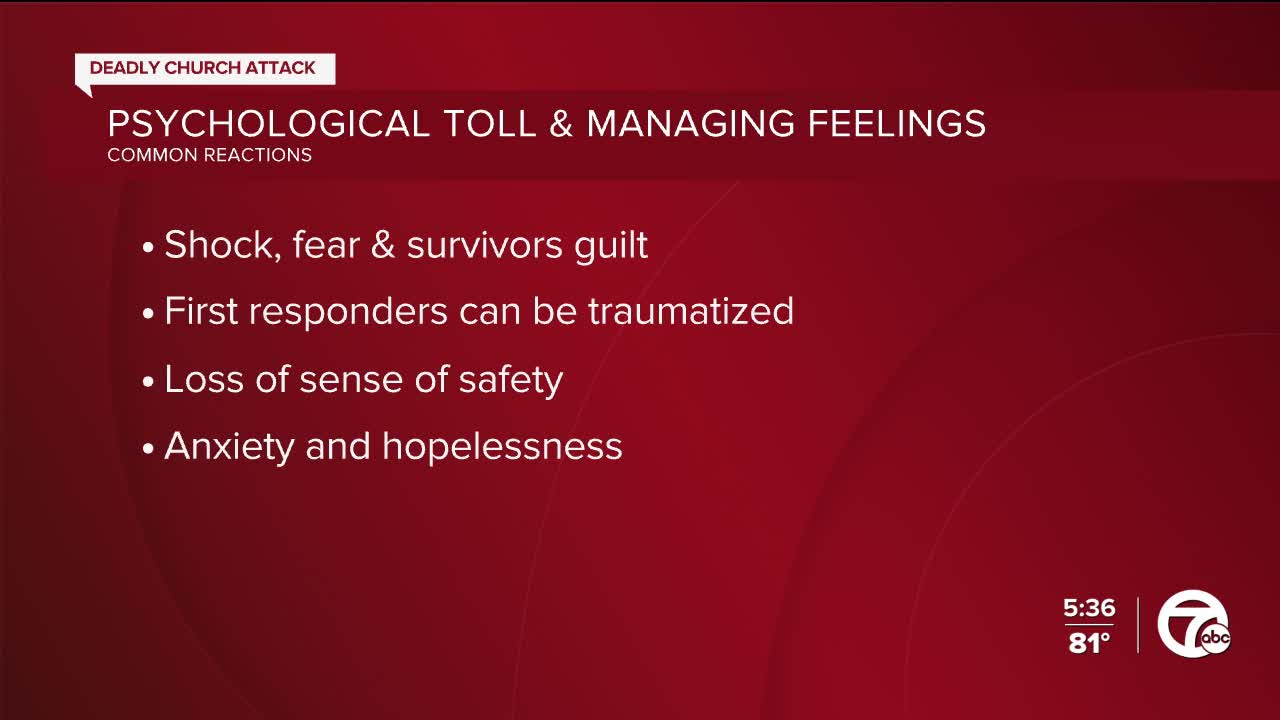(WXYZ) — In today’s Health Alert, a Michigan community is reeling after four people were killed and eight others wounded. A gunman rammed a truck into a Church of Jesus Christ of Latter-day Saints chapel in Grand Blanc, opened fire, and set the building ablaze.
This is the latest in a string of mass shootings at places where people usually feel safe and connected.
First of all, my sincere condolences to the families and loved ones of those who died. Tragedies like this are devastating.
For witnesses and survivors, there’s often shock, fear, and guilt. Some ask why they survived when others didn’t. First responders can face trauma from what they saw, even though they’re trained for a variety of crises. And for the broader community, it’s the loss of safety. A church, like a school or a neighborhood store, is supposed to feel safe. When that sense of security is shattered, people may feel anxious, on edge, or even hopeless.
I tell my patients and others that it’s normal to feel shaken. The key is not to go through it alone. Talking to your friends, family, or a counselor can help. Also, try to take care of yourself with healthy meals, proper sleep, and simple steps like walking or breathing exercises to reduce stress. It’s also important to take breaks from constant news coverage, which can heighten anxiety. Small steps like these really matter in healing.
So, how should parents talk to their kids about what happened?
I know it’s not easy - I have kids of my own. You want to protect them from the bad things that happen. But it’s an important conversation because kids often know more than we think, especially with social media. It’s better for them to hear about this from a loved one. Just keep the details age-appropriate. For instance, what you share with a teenager will be different from what you say to a 7-year-old.
Also, it’s important to keep communication open. Let them ask questions, share their thoughts, and be sure to listen. Remind them that whatever they feel - sadness, fear, even anger - is normal. Be sure to focus on the fact that this type of violence is considered rare. Then reassure them about safety, whether that’s the security measures at school or knowing they’re surrounded by teachers, family, and friends who care.
It’s also important to stick to routines. Homework, after-school activities, and family dinners all give kids a sense of stability. If you notice nightmares, trouble concentrating, loss of interest in activities, or ongoing fear that doesn’t ease with time, that’s when a counselor or doctor can help. One more thing I encourage is getting involved in positive change. Things like writing a card or supporting victims can restore a sense of purpose and hope.




